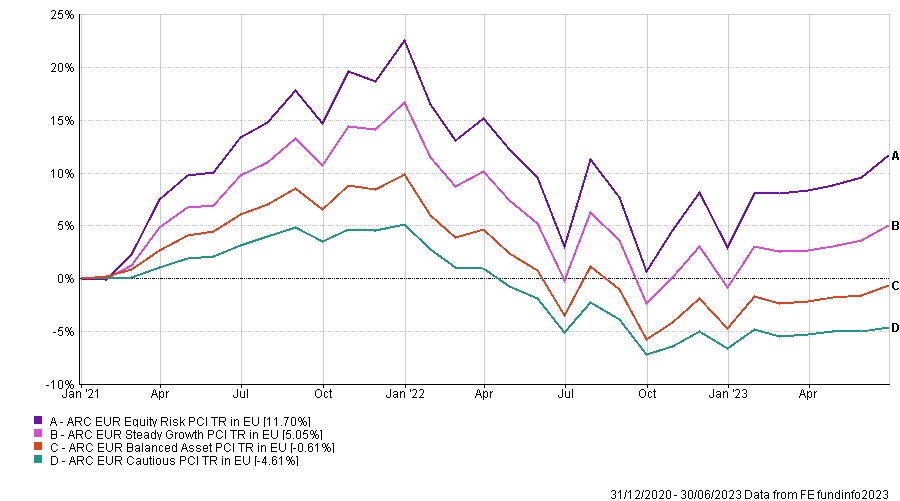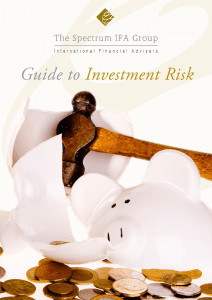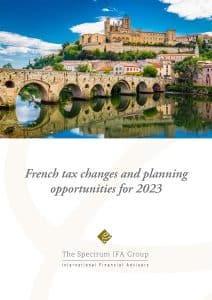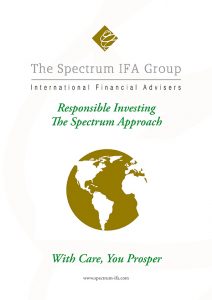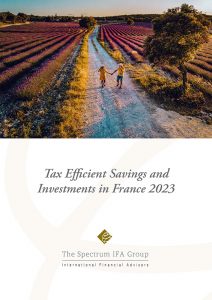Here we are already at the end of the year. 2023 has been a year of highs and lows, not for me personally or professionally, but in the markets. If you look at any of the main markets or indexes you can see that 2023 has been a challenging year for investors. Of course there are still several weeks left in December so it is too early to say how the year will end.
Financial update France December 2023
By Katriona Murray-Platon
This article is published on: 6th December 2023

At the end of November the UK chancellor presented the autumn statement. Whilst much of this does not affect those of us in France, Mr Hunt did confirm that the triple lock would be maintained and the pension payment would increase by 8.5% in April 2024. If you are entitled to the new State pension you will get £221.20 a week from April. Those pensioners who qualified for their pensions before April 2016 will also see an increase from £156.20 currently to £169.50 per week. Unlike in the UK the tax bands in France have been increased for 2024 so this means that, subject to the exchange rate, pensioners in France will get more income but pay less taxes next year.
The Bank of England decided in November that it would not increase interest rates and would maintain it at 5.25%. Whilst this is unlikely to change in the medium term, with inflation falling to 4.7% in October, it has been no surprise to me to read in the UK press that many banks are dropping the high interest rate accounts that have been on offer over this past year.
Please remember that most companies and business owners have to pay CFE by 15th December. As the CFE is a local tax and the other local taxes like the taxe d’habiation and taxe foncière increased this year, it should come as no surprise if you find that your CFE has also increased.
As we head towards the end of the year there may still be some things you might want to consider doing to alleviate your tax burden next year. Tis the season for giving so if you haven’t already been making charitable donations monthly during the year or you want to make one off donations at this time of the year, you can deduct between 66% to 75% of the amount donated, depending on the status of the chosen charity, and up to 20% of your annual taxable income. Also, if you have a PER and are in a position to make a contribution to it before the end of the year, this is also deductible from your taxable income.
There was good news for those invested in the Pru as, at the quarterly review of the Expected Growth Rates on 27th November, there was no changes to the EGRs and no Unit Price Adjustments. This was welcome news since there had been three consecutive downward Unit Price Adjustments in the PruFund Growth Sterling fund in previous quarters.

Looking forward, I always like to remain positive and hopeful however I have learnt that it is also important to manage expectations. One of our product provides reminded me that there will be many countries heading to the polls in 2024 and that this is likely to cause turbulence and volatility in the markets.
The OECD predicts that “In the absence of further large shocks to food and energy prices, projected headline inflation is expected to return to levels consistent with central bank targets in most major economies by the end of 2025.” It further stated that whilst “Global growth is projected to be 2.9% in 2023, and weaken to 2.7% in 2024. As inflation abates further and real incomes strengthen, the world economy is projected to grow by 3% in 2025”. Of course, whilst these are based on careful analysis and good information, they are just predictions and as we have seen things often turn out better than most analysts ever predicted.
No matter what happens my job is to be there for my clients, to advise them on their investments and provide them with the proper information to help them make the right financial decisions so please do get in touch if you would like to arrange a phone call, video call or face to face meeting.
I shall be celebrating Christmas here in France and then New Years in the UK. There are still plenty of dates available for meetings before the end of the year but if I don’t speak to you before then I wish you all a very happy holiday season and all the best for the new year!
Financial update France
By Katriona Murray-Platon
This article is published on: 7th November 2023
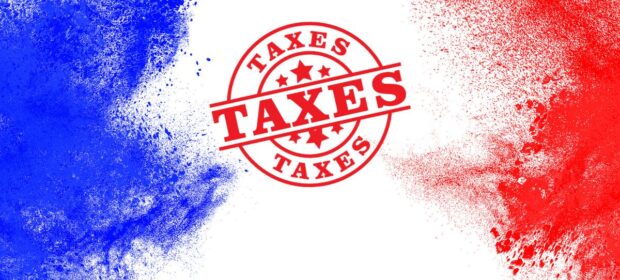
November is here, the temperatures have dropped and it is cold and rainy outside. So here is some good financial news to warm you up!
Since the 1st January 2023, Taxe d’habitation no longer applies to the main residence. Now it is only those with a second home who have to pay taxe d’habitation on their second property. The tax statements should be on your online account on the impots.gouv.fr website in November. You have until 15th December to pay this tax.
In France, one out of ten houses are considered to be second homes by the tax office. These properties are mainly to be found on the coast (40%) or in the mountains (16%) with the remainder being mainly in the larger towns and cities (12%). These properties are usually smaller than the main home with a quarter of them being less than 40 m².
Contrary to what some newspapers would have you believe, any taxes on second homes largely affect French owners and not foreigners, since only one out of ten second homes are owned by a person living outside France. Among those owned by French residents, two out of three properties are owned by people over 60. This figure increases to three out of four along the coast. 34% of properties are owned by higher income households. https://www.insee.fr/fr/statistiques/5416748.
Make sure that you check your Taxe Foncière statement that you received in October as there could be a mistake on it. According to the French tax office approximately 1.87 billion euros have been overpaid just in 2023 because of mistakes made by the tax office.
The draft finance law has been making its way through parliament. Article 2 of the draft finance law for 2024 has increased the tax brackets by 4.8%. The new proposed tax brackets are as follows:
| Income | Tax rate |
|---|---|
| Up to €11,294 | 0% |
| From €11,294 to €28,797 | 11% |
| From €28,797 to €82,341 | 30% |
| From €82,341 to €177,106 | 41% |
| Over €177,106 | 45% |
If you are in receipt of a French pension through Agirc-Arrco, the additional pension (complémentaire) will increase by 4.9% in November. It increased last November by 5.12%. The French State pension will also increase by 5.2% from 1st January 2024.
If you haven’t already looked into carrying out work on your house to improve your heating or energy efficiency, now may be the time as the amount of the bonus (MaPrimeRenov) has increased on average by €4300.
The maximum amount that you can put into a LEP savings account has increased since 1st October from €7700 to €10,000. The interest rate on this amount remains at 6%. To be eligible to have a LEP, your taxable income (revenue fiscal de reference) for 2022 as stated on your tax return received in Autumn 2023 must be less than €21,393 for a single person, or €32,818 for a couple.
The 30th November is the date by which you must inform your bank if your taxable income (revenu fiscal de reference) in 2021 was less than €25,000 as a single person or €50,000 as a couple, so that they don’t automatically take the 12.8% tax from the interest on your savings in 2024. If you receive dividends, the income thresholds are higher, €50,000 for a single person and €75,000 for a couple. This is particularly important if your income is not taxable or in the 11% tax bracket. These thresholds remain the same as previous years and have not increased with inflation.
November is the month when you can see the most beautiful autumn colours around France. It is also a great time to review your finances and make plans for the year ahead. If you have any questions on the above or any other matters, please do get in touch!
Spectrum supporting Mimosa Matters
By Peter Brooke
This article is published on: 25th October 2023

The Nice to Cannes Relay Marathon
As we gear up for the upcoming Nice to Cannes Relay Marathon on November 5th, I wanted to take a moment to share with you the reason behind my choice to support Mimosa Matters, a charity that holds a special place in my heart.
In a world that often seems to move too quickly, community stands out as a pillar of strength and support. It’s a reminder that we are not alone and that, together, we can make a meaningful impact. The Nice to Cannes Relay Marathon embodies the spirit of community, with individuals coming together to achieve a common goal through teamwork and perseverance, and having a bit of fun together through the aches and pains.
Don’t worry, I am not running the entire Marathon – that would be crazy – I will leave that for those whose fitness levels are way better than mine!
I am running the final 6.4km leg…. some might say the ‘taking-all-the-glory-leg’… for Team Early Birds, a gang of super women who are doing all the hard work over the proceeding 35.6km; if you have a spare euro or two, please do consider empowering our legs to carry us all to the end by helping us raise some funds for the important work that Mimosa undertake.
The fundraising link for our team is here
I was hoping to run a longer leg but a recent bout of bronchitis and a lower back injury have curtailed my training a little but I am back hitting the tarmac again and as I lace up my running shoes for my leg of the Relay Marathon, I am not just running for personal achievement; I am running to try and make a difference.
Mimosa Matters shares this commitment, and by supporting their cause, we can collectively contribute to creating a stronger, more compassionate community.
Your contribution, no matter the size, will help make a positive impact on the lives of those in need. Together, we can run towards a brighter and more connected future. Of course, please don’t feel any pressure to contribute at all… instead perhaps share this email or come and encourage us all on the road a week on Sunday, you won’t miss us, we’ll all be in bright yellow.
Why Mimosa Matters
Spectrum and I have chosen to support Mimosa Matters again because of the incredible work they do in fostering a sense of community and making a positive difference in the lives of others. Mimosa Matters goes beyond traditional charity by actively engaging with local communities and addressing their specific needs in the fight against cancer.
They work closely with local cancer professionals & associations to create and fund projects to increase awareness of the causes of cancer and to channel funds into cancer research and into associations that directly support patients and their families living with cancer in our region.
Sadly, too many of us have been directly affected by this relentless disease and we must stand, walk or run together to try and stop it.
Please follow these links if you would like more information about Mimosa Matters
https://www.mimosamatters.org/
and the Marathon https://www.mimosamatters.org/project/nice-cannes-marathon-2023/
And, in case you missed it, the all important fundraising link again for our team is here
https://www.helloasso.com/associations/mimosa/collectes/team-early-birds-running-for-mimosa
https://www.facebook.com/mimosamatters and https://www.facebook.com/financial.advisors
Thanks for taking your valuable time to read through this, I really appreciate it.

Finance update Q3 2023
By Peter Brooke
This article is published on: 13th October 2023

Let’s talk about CASH
Since my last quarterly update in August the mood in markets has been a little confused.
After the more optimistic start to the year when stock markets, especially in the US, showed resilience and the roots of recovery from a horrendous 2022, the summer was much more mixed. The Bank of England and the US Federal Reserve didn’t raise interest rates in September, though the ECB did but from a lower level.
August was much more volatile than expected with investors trying to work out if inflation had peaked and if central banks were done with their unprecedented interest rate hikes, and when they might start thinking about cutting rates.
The oil price has also settled at a higher-than-expected level, which might be a sign of increased economic activity, but it doesn’t help to get rid of sticky inflation.
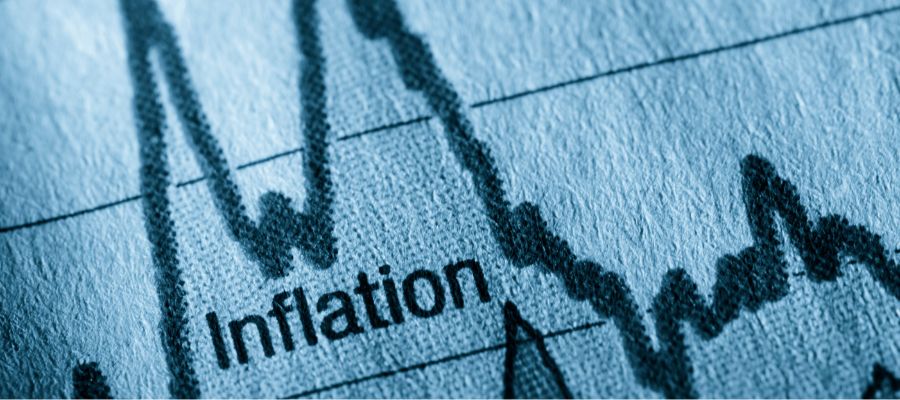
Higher for longer
Interest rates are a means of dealing with inflation. Central banks raise rates to increase costs and reduce spending power with the aim of lowering demand and squeezing prices. This is an art rather than a science. Central banks need to find the right balance of weakening demand, while avoiding a recession. This has proved fiendishly difficult and tackling inflation has seldom been achieved without some economic pain.
We are currently in the eye of the storm. Over the past 18 months, global interest rates have moved from near zero to over 5% in some places. Inflation is coming down and interest rates may have peaked, but monetary policy operates with an unpredictable lag. It is difficult to know how much of these interest rate rises have fed into the economy and whether a recession is just round the corner.
Investors will have to start getting used to these elevated levels of interest rates for longer as the consensus opinion is now that interest rate cuts won’t come quickly and won’t be significant until inflation is firmly under control. We are still very much in a holding pattern.

So should I keep my cash in my bank?
Of course, one of the few benefits of these hikes in interest rates is that you can now achieve some positive return on cash, which hasn’t been possible for around 15 years!!
I am having a lot of conversations with people asking why they should consider investing rather than leaving money in the bank.
This is a very good question… equity and bond investors have had very little, if any, positive returns since January 2022 so why invest now when I know I can now get returns on cash?
For someone with a very short-term time horizon, and therefore a very low risk profile, then cash earning around 5% will look attractive. Clearly tax is an issue, which will diminish this return but still it is at least a certainty.
What about those with longer time horizons – should they stay in cash given the high returns relative to recent history?
There are several considerations here:
1. Sticky Inflation
If base level inflation is to remain higher for longer then we still need to consider the NET return you will be getting on your cash.
Here is a chart showing UK Inflation and UK interest rates over the last 30 years – even today inflation, though falling, is still above base rates:
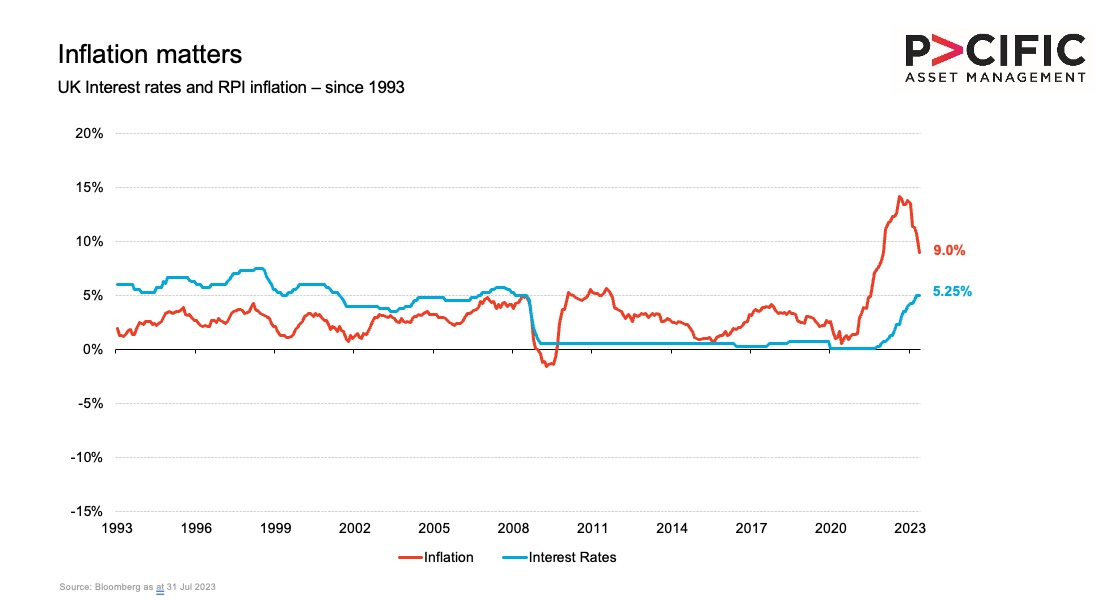
Put another way – if we take one away from the other we can see that the REAL return on cash today is still negative (the green line) – that’s a guaranteed loss of 3.75% over the next 12 months.
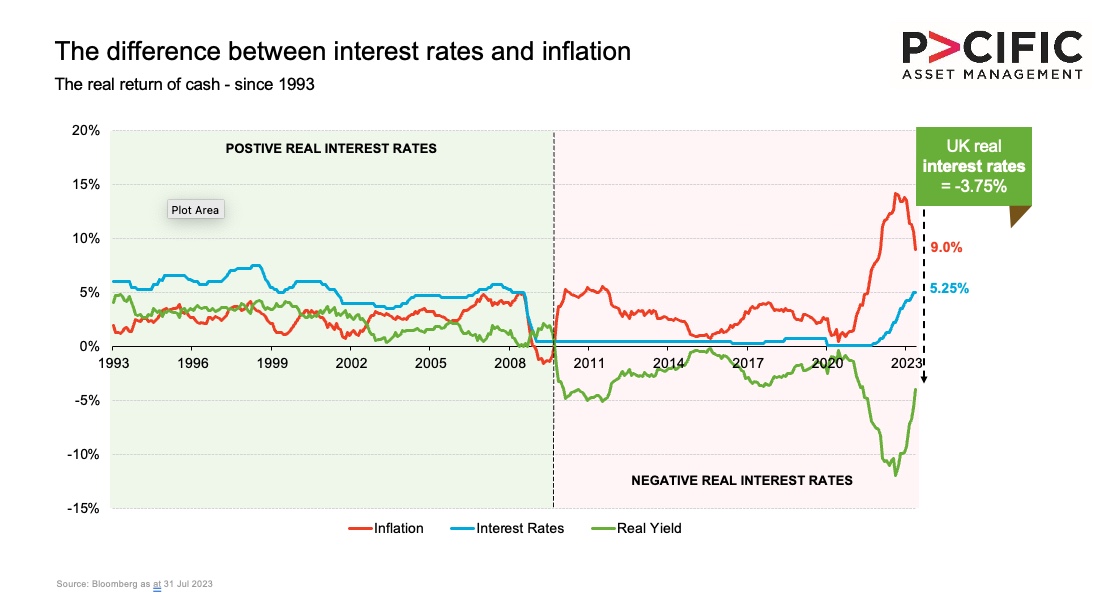
Put another way again… what can you buy in 5 years if things remain as they are today? See below for a real world example of how inflation affects us all:
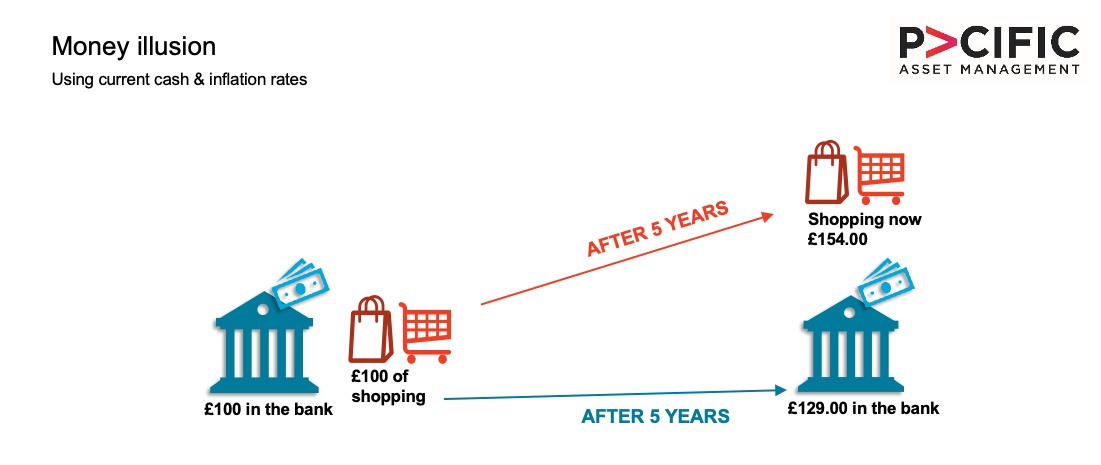
2. Other investments should do better…
BONDS:
Most investments are valued versus the ‘risk-free’ rate of return (ie cash).
So when cash was paying you 0.1% many investors were happy to accept 1.5% to 2% from high-quality investment grade bonds, even though they come with a little more risk….
… so there is a strong case for buying bonds today yielding 6% to 7% because we are happy to be paid the extra 1.5% to 2% for the extra risk we are taking… this is exactly where bond ‘yields are today’.
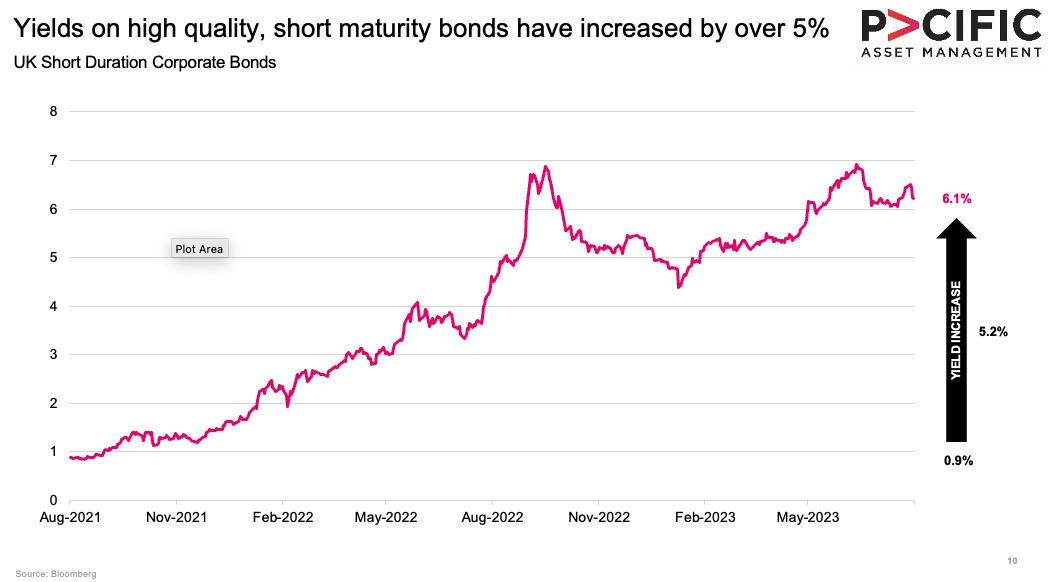
SHARES:
Though more volatile, shares have always outperformed cash AND inflation over the longer term.
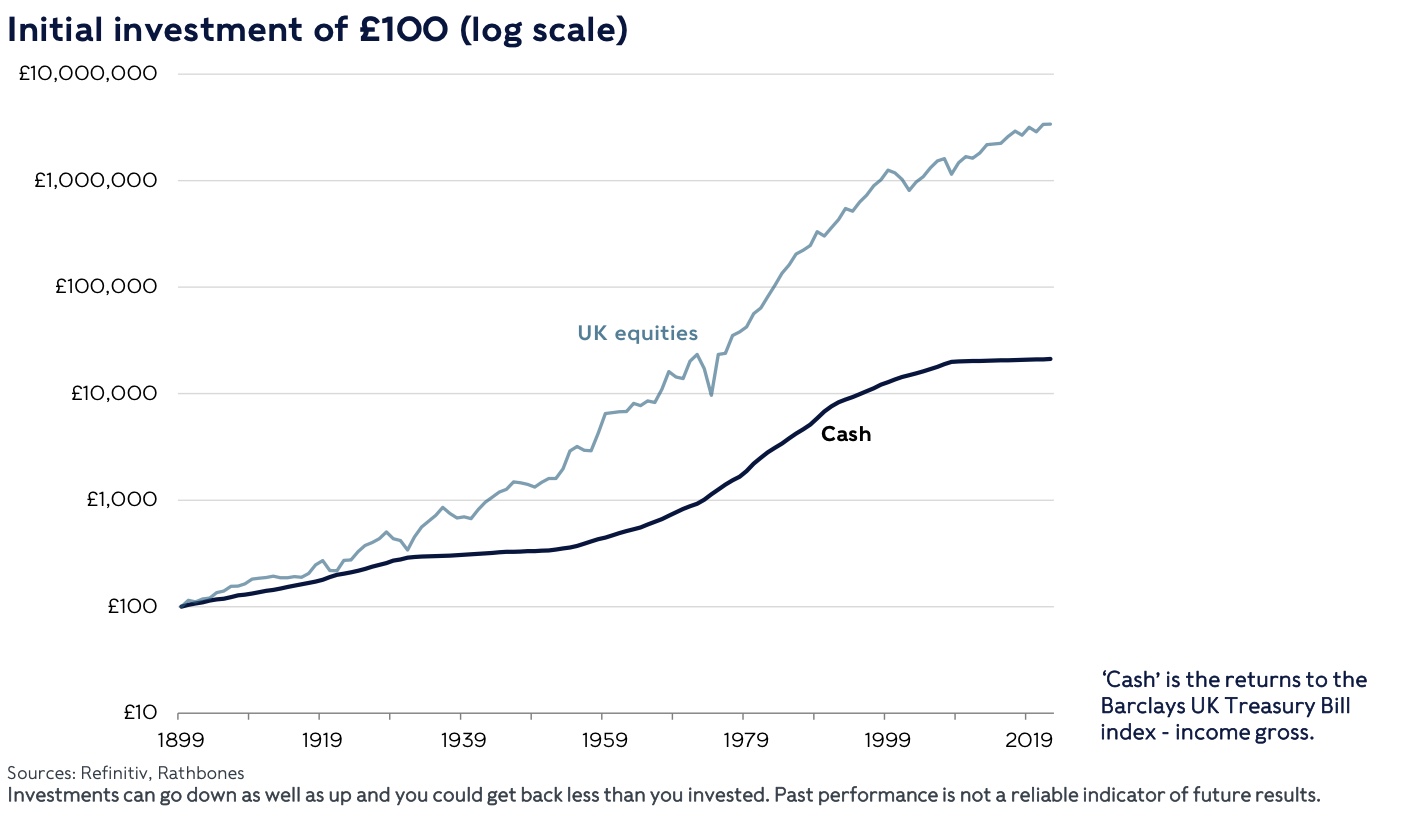
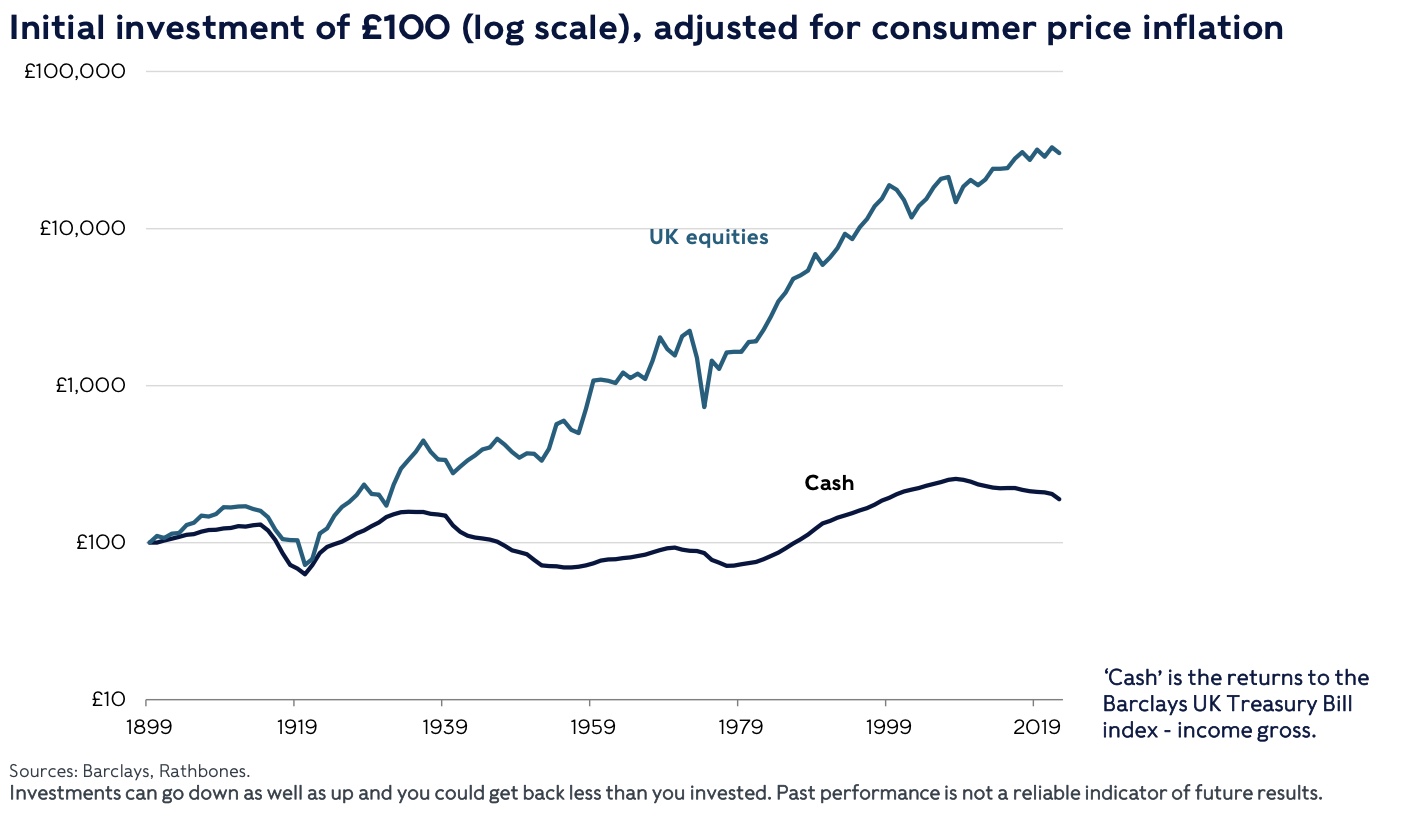
And expectations over the coming years are that shares will continue to outstrip returns on cash:
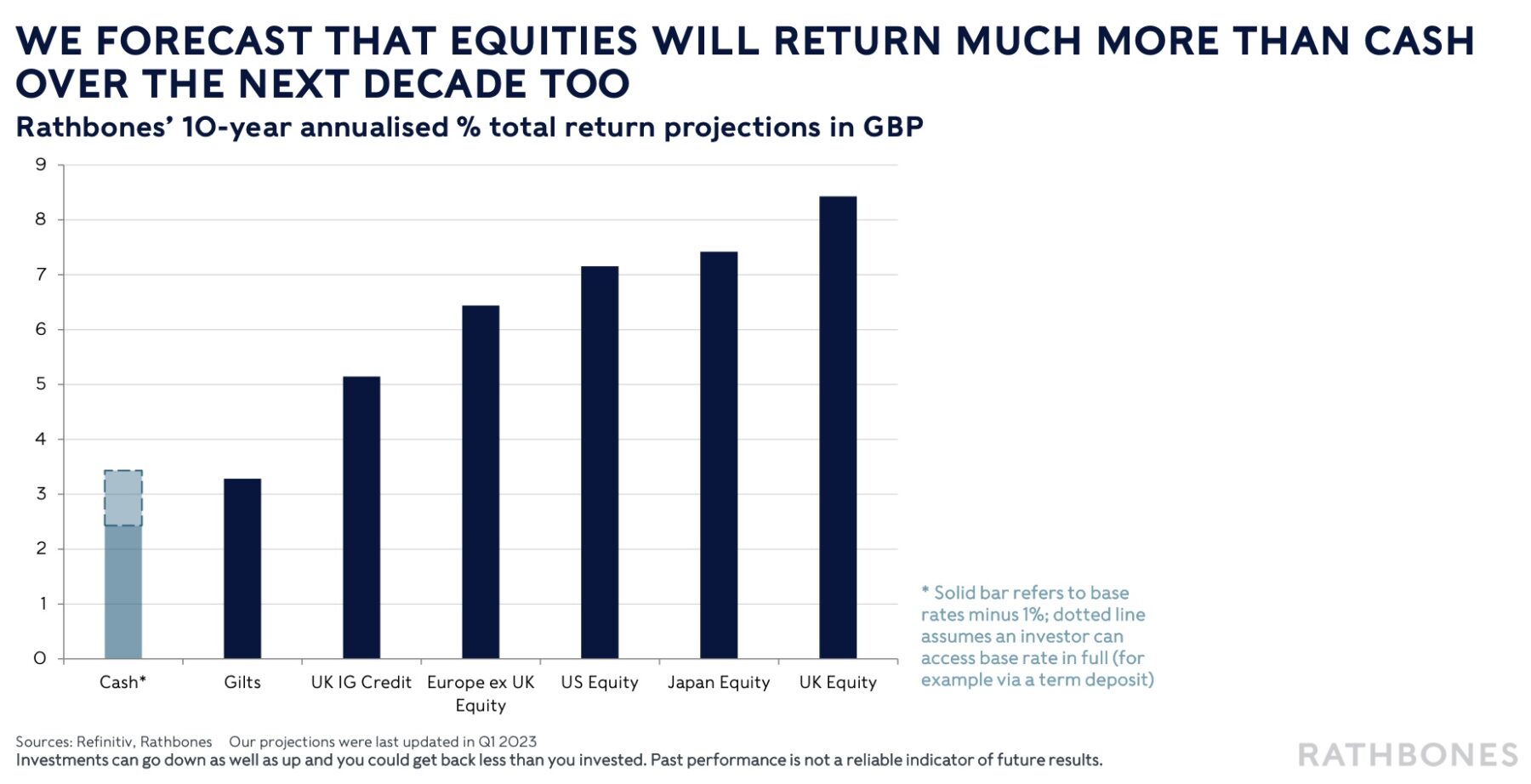
In Summary
We feel that we are getting closer to understanding a little more about how the future might look. Inflation seems to have peaked but will remain sticky for a while, which will mean interest rates are likely to stay higher too for longer than originally thought.
The chance of global recession is still there but nor lower and the consensus appears to be that it will be soft and short if it emerges at all. This can be good for stock market performance but in the meantime cash and bonds are, for the first time in a very long time, a genuine investment option; though sticky inflation must be taken into account when choosing how much to leave in cash.
Inflation is a financial reality that we all need to navigate. By proactively addressing this challenge and exploring investment opportunities that protect your wealth, we can work together to ensure your financial future remains secure.
If you have capital to invest for longer than the next couple of years then an actively managed multi asset approach should be considered to minimise the effects of inflation on your hard earned funds.
I would very much like to thank the investment teams at Pacific Asset Management, Rathbones Investment Management and Evelyn Partners for their input into this data and summary.
If you would like to dive deeper into these subjects please check out the following links:
3rd Quarter Outlook from Pacific Asset Management
Why do interest rates and inflation matter for investors from Evelyn Partners
Feel free to get in touch if you have any questions via the below channels, or the booking system – always drop me a quick message if you need a time slot outside of those available.
If you have missed any previous emails, click here to access the Archive.
For now, have a great day, speak soon…
Introducing your Client Portal
By Peter Brooke
This article is published on: 5th October 2023
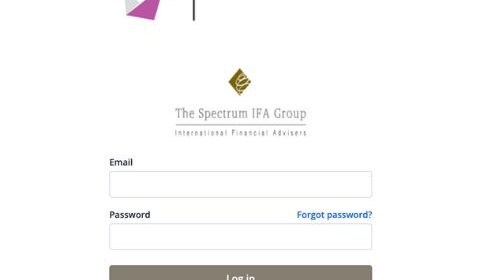
CashCalc
What is the Cash Calc Secure Client Portal?
Cash Calc was launched back in 2014 by a UK IFA who was unimpressed with the digital tools available to our industry. It was initially launched as a Cash Flow Planning Calculator – more on this later, but has developed into a broad suite of great tools for advisers like me and their clients.
“seek first to understand, then to be understood”
In order to best advise my existing and future clients I need a full picture of their current situation and an understanding of their objectives, aspirations and goals – we rather boringly call this ‘fact finding’… though it is not all just facts!
A recent addition to the Cash Calc tools is the ability for my clients to complete or update their own fact find in their own time from the comfort of their own homes via the Client Portal, if they want to. It is totally secure and can be updated as little or as often as necessary.
We can also use the portal for the secure sharing of documents, like investment statements, passports, utility bills etc AND for secure two way messaging.
For those who prefer not to use this service, please don’t worry, I will still use it as a data storage tool but will manage the access and information myself.
Please check out this video for more:
Hop Onboard
If you are already ‘onboarded’ and have your Portal login details please do have another look and send me a quick message (top right corner of the screen) to say hi and confirm it is all working OK.
Some of my existing clients have stated a preference to have their quarterly investment statements shared via the portal as a more secure option than email – please don’t hesitate to let me know if you prefer this too?
If you are not yet ‘onboarded’ please don’t worry, as part of our review process I will be sending you a personalised ‘secure invitation’ to the portal to set it all up; it is very easy.
Of course, if you just can’t wait please drop me a line and I will send your personalised login details immediately.

Cash Flow Financial Modelling Tool
As mentioned above Cash Calc started as a ‘Cash Flow Planning Calculator’ and though it is now so much more, this remains one of the most powerful and useful tools for creating truly personalised financial plans.
Using the ‘fact find’ data you provide in the portal I can create multiple bespoke cash flow plans to look at various scenarios and forecast how your financial situation will evolve over time.
“can I afford to retire now?”
“can we pay for our daughter’s wedding?”
“can we fund our Grandchildren’s education?”
We can see graphically where you are today and what changes, tweaks or decisions need to be made to ensure you will be ok long into the future.
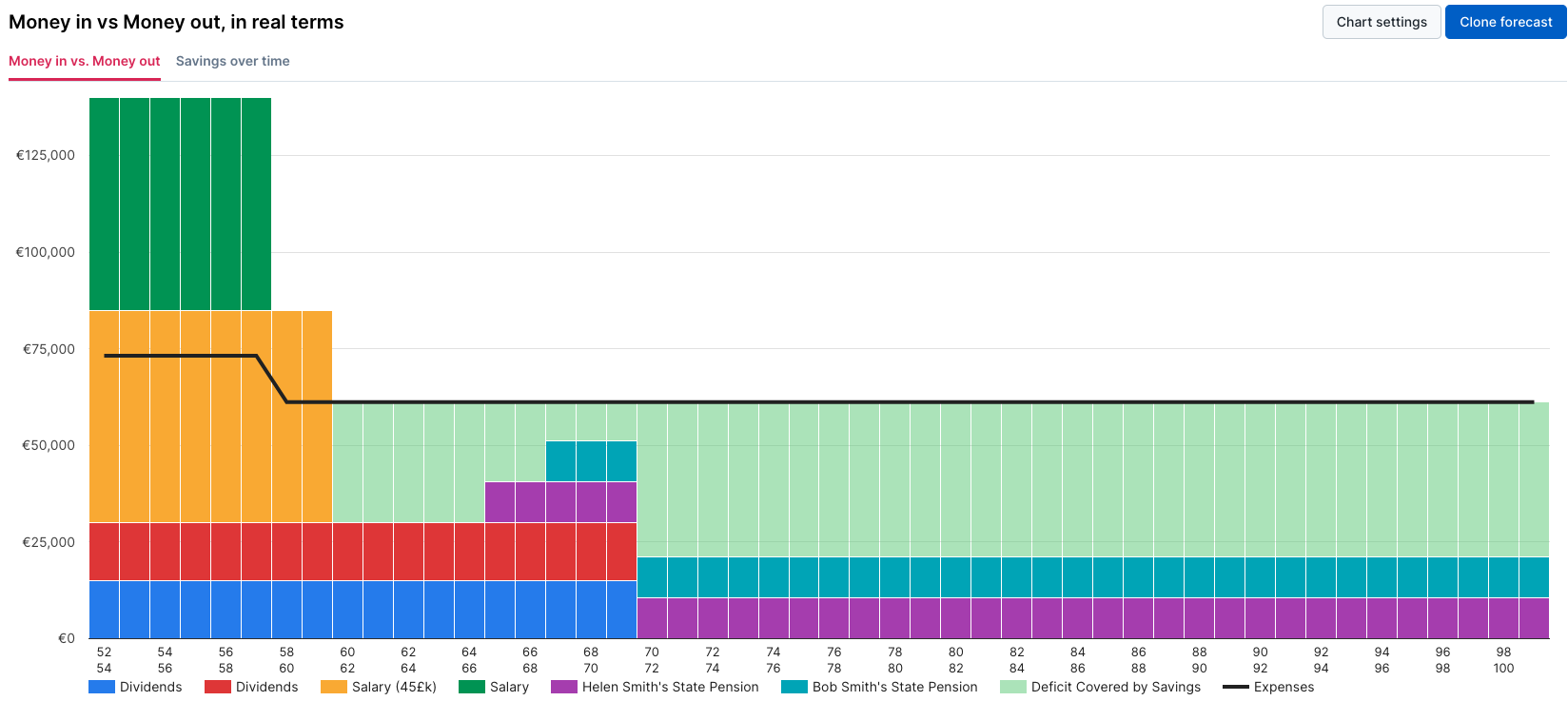
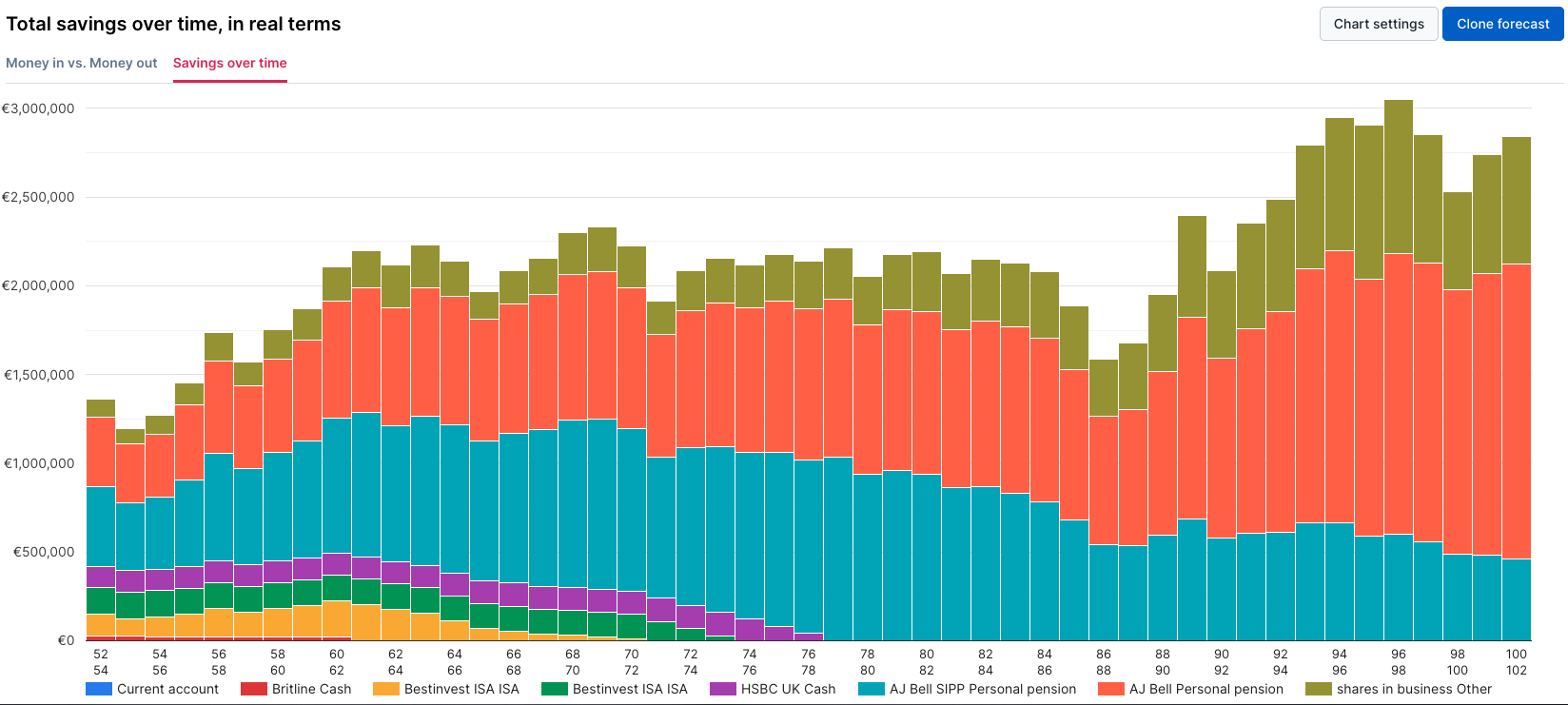
Why I love it…
- Its not time critical – you can upload and enter your details in your own time, at your own pace
- Totally Secure – bank level encryption, customised for the Spectrum IFA Group
- Simple interface between us for sharing of documents, messages and, most importantly, for uploading up-to-date financial information
- I am notified as you make changes to your profile
- ‘Virtual’ Modelling tool with scenario based examples
- Very Visual – it’s easy to see how changes will directly impact your situation as we tweak your plans
- Digitally and securely accept and sign-off on a range of documents
- Quarterly Financial statements can also be shared here instead of emailed
….. oh, and it has a load of other great tools we can use too…..
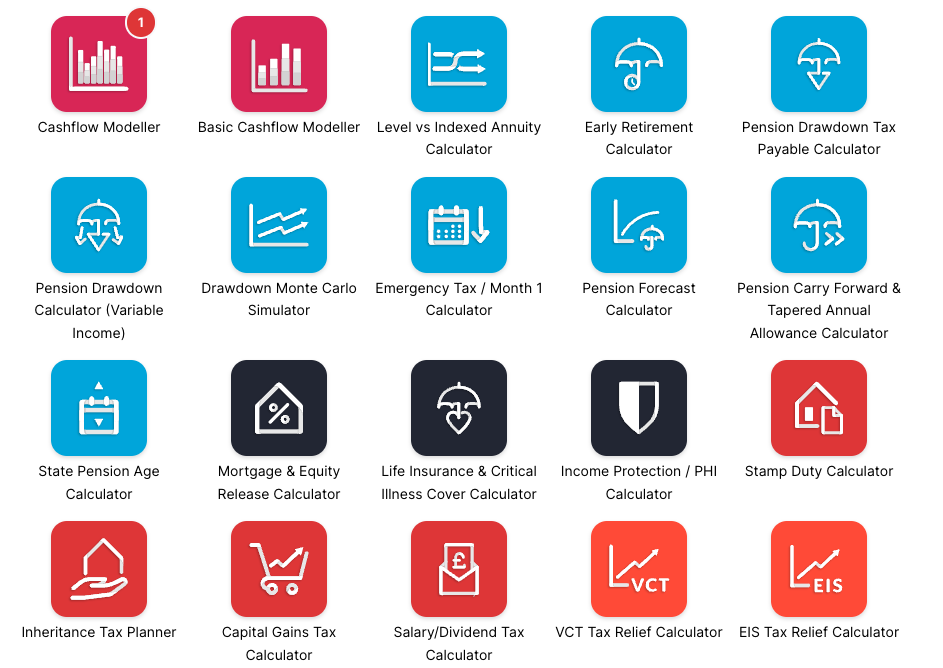
Financial update in France October 2023
By Katriona Murray-Platon
This article is published on: 4th October 2023
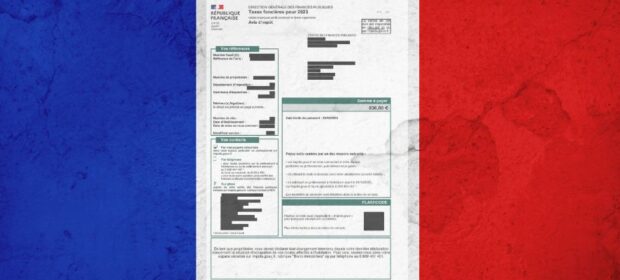
September is a gorgeous month in France and this year has been no exception. For me September often goes by in a whirl – with the children back at school there are still after school activities to organise and parent-teacher meetings to attend.
However, for those who are not affected by the back to school mayhem September is a great time to enjoy the warmer weather and the beauty spots of France once the summer tourists have left.
Further to what I wrote in my last Ezine, the interest rate on the Livret A and Livret de Développement Durable et Solidaire (LDDS), which was expected to rise to 4%, shall instead remain at 3% and the French government has committed to keeping it at this rate until 2025. However, an appeal against this decision has been brought before the Conseil d’Etat. The interest rate of the Livret d’Epargne Populaire (LEP) has already dropped slightly from 6.1% to 6%.
If you realise you have forgotten to declare something on your 2022 tax return or you wish to correct an amount, you can, since the 1st August, amend your return on your online space on the impots.gouv.fr website. This service will be available until 11.59pm on 6th December. You should have already received your tax statement for the declaration you did in May and you should pay the amounts requested on this statement but if you do decide to amend your tax return, a new statement will be issued and any overdue amounts will be adjusted or repaid.
The tax authorities should already have your bank details that you provided to take any overdue tax from your account or pay any reimbursements. If this is not the case and if you have less that €300 to pay, you have to pay this by 30th September using the online service. If you have more than €300 to pay on your 2022 tax bill, these amounts will be taken on 26th September and around the 25th of October and November with the last quarter of the payment being taken out of your account on 27th December.
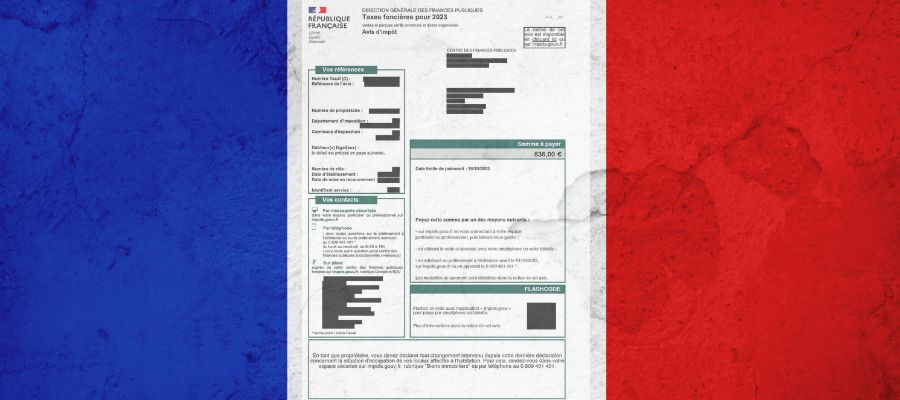
October is the month for the taxe foncière which is due by 16th October or 23rd October if you pay online or with your telephone or tablet. If you have already received your statement, you may have noticed an increase in the amount. The taxe foncière increased by 3.4% in 2022 but it has increased by 7.1% in 2023. This is an average and does not include any increases that the local councils may have voted. The sharp increase is due in part to the annual review of the rental value of the property which takes into account the Consumer Price Index which itself is determined by inflation.
Not everyone has to pay the taxe foncière. There are exemptions for those on pension benefits (ASPA) or disability allowance (ASI and AAH) as well as for those who were 75 and over on 1st January 2023 if your taxable income (RFR) for 2022 was less than €11,855 for one person or €18,233 for a couple. If one partner is over 75 and the other isn’t they can still be exempt. If a person is in a retirement home, their former home, provided it is not rented, is also exempt. New constructions, extensions or changes to buildings (a barn conversion for example) may be partially or totally exempt from taxe foncière for the first 2 years unless the local council has decided otherwise.
Although 2022 was a difficult year financially, this has not stopped the French from investing in Assurance Vie policies. According to the data published in the Le Particulier magazine in September (no 1208), 144.4 billion euros was invested in assurance vies in 2022, only slightly down from 2021 when 148.6 billion euros was invested. Most of this was in Euro Funds which, in spite of their steady decline over the past ten years, saw a slight increase in 2022 to 2% which is however less than the rates on the Livret A and LDDS.
In other news in September, I had the very great privilege of being invited to the GREAT event, organised by the British Embassy, in honour of the King and Queen’s visit to Bordeaux in September. Around 1500 people, French and British, were invited to this special event at the historic Place de la Bourse where we mingled with other members of the Bordeaux British community, bilingual professionals and business owners; sampled British foods, wines and sparkling wine and enjoyed music by local British artists. In addition to seeing the King and Queen, who arrived by tram to this event, Paddington Bear also made an appearance and the Fiji Rugby Team were also there and sang a beautiful song to the King as he was leaving. It was a very special and enjoyable day!
Financial update – France September 2023
By Katriona Murray-Platon
This article is published on: 4th September 2023

I hope you all had a good summer. We spent ten days in Andernos and then enjoyed a much cooler ten days visiting family in the UK. Whilst I was in the UK I saw an advert in the paper for a bank savings account offering around 5% interest on amounts up to £50,000.
However, I noticed that in order to benefit from this rate you would have to commit to leaving the money there for two full years otherwise if you took the money out you would only get around 2% interest. A quick scan of the finance section of the paper showed similar offers. Now, leaving aside the fact that once you are French resident you can’t open a UK bank account, with inflation in July being 6.8% in the UK these rates are still far below inflation. IF you were to have one of these accounts and be a French resident you would need to reduce the interest rate by 30% because that is the French tax that you would have to pay on any gains. Also there is exchange rate risk that needs to be considered.
Some other accounts were brought to my attention in Jersey. However there is no double tax treaty between France and Jersey so any interest earned would be taxable in both countries.
I always advise people to take advantage of the French tax free savings accounts like the LDDS and the Livret A and the LEP if you meet the income threshold BEFORE investing. If you add the CEL account to this list it effectively means you can hold around €50,000 readily available cash earning tax free interest. These rates are reviewed quarterly on 1st of February, May, August and November. You will be pleased to hear that there have been no changes to these rates as at 1st August 2023.
One of the key points about investments is diversification. Not only are the investments we recommend very diversified in terms of geographic location and asset class but if you have invested with us this is usually only a part of your assets.

All investments whether it is your house, your bank accounts, or your other investments, involve some level of risk. You only have to look at the history of the rates on the savings accounts HERE or the current concerns about house prices and mortgage rates in the UK, to see that nothing is guaranteed in the long term. But what we can show you from the past performance of the investments we offer is that over the past three or five years they have performed well. And the longer the investment term, the greater the likelihood of strong, positive returns ahead of the rate of inflation.
Another thing we managed to do at the end of July was to complete our wills and make stipulations about the guardianship of our children. I wrote about guardianship HERE but I admit I never got round to doing anything about it until now. The husband of a French financial adviser that I recently met is the Notaire in an office in our neighbourhood so we were able to make an appointment with him. We hand wrote our wills before the notaire, signed and dated them and then handed them in with a cheque for them to be registered. It was all very easy and I’m glad that it is now sorted.
By now you should have been able to view your tax statements in your online tax account, if you have any questions about the figures please do let me know.
After a long and much needed break, I am excited to be back at work and arrange appointments with my clients and those who have contacted me. If you want to speak to me about something please do let me know.
Looking forward to speaking or hearing from you soon!
Preparing for the inevitable
By Richard McCreery
This article is published on: 4th September 2023

A few tips on how planning ahead, as well as looking back, can make a difficult time much easier on our loved ones. It comes to us all, but we devote relatively little time to thinking about it: death.
Unsurprisingly, most people prefer to avoid thinking about their own mortality, but they are keen to ease the pain for loved ones who are left behind. In this short article I’ll take a look at some tips to make this time a little less hard on your family and I’ll even give you an idea of how you can leave behind a moment of happiness for your closest relatives.
Make ‘The Folder’
My colleague Gareth Horsfall has written about the importance of ensuring your paperwork is in order and stored where your relatives can find everything they’ll need to get through the formalities that inevitably ensue from your passing. The Folder is a central location (digital, physical or both) where you keep a record of all your assets, your bank accounts, your pensions and investments, as well as a copy of all your important documents like birth certificates, marriage certificates, your social security number etc. And, finally, a list of all your internet and device passwords, of which there could be a lot!
Modern life can be extremely complicated whilst we are still alive and it becomes even more so when you have to deal with someone else’s affairs that may not be entirely familiar to you. By collecting all the important paperwork and information in one place, you can ease the inevitable administrative burden and show your loved ones that you were thinking about them. And don’t forget to tell them where they can find The Folder.

Close old overseas accounts and companies
I was once asked to help the wife of a client to deal with some of the inheritance formalities that were required for the settlement of his estate after he died. Wealthy people often have assets in various countries and this can lead to significant extra time and expense when attempting to transfer everything from the deceased’s estate to the beneficiaries.
For example, the ownership of a British Virgin Islands company can’t be transferred to someone else before probate is granted in that jurisdiction, which entails securing the services of a local qualified lawyer. If that company is no longer needed once the deceased is gone then further fees will be incurred in BVI for closing that company. Multiply this scenario across various foreign jurisdictions and it can become quite costly and time consuming in order to settle the full estate.
Conclusion: if you can simplify your affairs by closing underutilized overseas companies or dormant bank accounts, it can save your family a lot of hassle and money later.
Avoid paying more tax than is necessary
Ironically, inheritance tax is a fact of life. It is often only considered when it has to be paid and it can be surprisingly substantial – in France a house can swallow up any allowances you may benefit from, leaving the remainder to be taxed at up to 45% for children and up to 60% for non-family beneficiaries. By using an assurance vie policy as a vehicle for managing some of your wealth you can substantially increase the tax-free sums your loved ones inherit, they may pay a lower tax rate on the amount that is taxed, you can use the beneficiary clause to choose who gets what and the money can grow free of tax during your lifetime if not withdrawn.
Everyone hates paying inheritance tax, so when you know that your children can inherit an extra 152,500€ each tax-free if the money is coming from an assurance vie policy, it quickly becomes apparent how much you can save them (don’t forget: in order to get the maximum benefit, you should start your policy before you turn 70). They say there are only two things that are certain in life: death and taxes. Whilst you can’t avoid the first, your family might avoid the second with a bit of foresight and planning.
Finally, leave them something really personal
You’ve finished tidying up the loose ends of your life, you’ve done all you can to minimize the tax your family will pay and your affairs have been put ‘in order’. You have made every effort to ensure your passing will be as little of a burden on your beneficiaries as is possible, you have made a difficult time less difficult by thinking ahead. There is also a way to use this moment to bring some joy into the lives of those who love you: by thinking back on your life.
A memory journal is a little treasure that helps you to record some of the most precious moments of your life, to be passed on to your children or grandchildren. It is a guided book that contains prompts and questions such as ‘How did you meet my mother?’, ‘What was your favourite subject at school?’, ‘Tell me about the happiest or greatest memories of your life’ or ‘What did you feel when you first saw me after I was born?’ It gives you the opportunity to leave your family the story of your life, your most intimate thoughts and feelings, perhaps alongside a few photos.
Money and paperwork are important, they have to be dealt with. Put everything in order, in advance, and you will be doing your family a big favour. Leave them as much money as you can tax-free and you’ll ensure they will be better off. And finally, a few of your own words left alongside the admin makes this difficult time more bearable. These things are easily put off, you may not even want to think about them, but if you take action sooner rather than later, I promise you will never regret it.
If you would like to speak me about planning ahead and putting your family affairs in order, please get in touch. I’m here to help and happy to answer any questions with no obligation.
Finance update Q2 2023
By Peter Brooke
This article is published on: 4th August 2023

This update is a look back at 2022 and the year so far in 2023! I believe that 2022 was one of the toughest years of the 25 of my career in terms of the very difficult conversations I had with many of my clients. Those 25 years included the DotCom Bubble, 9:11, the invasion of Afghanistan, the second Iraq war and the Global Financial Crisis.
2022 was different for one main reason… it seriously affected Cautious and Balanced investors and as most of my clients are retired and therefore dependent on their capital for income, it means they need to take a more cautious or balanced approach to managing their money.
So what happened?
At the start of 2022 markets were pricing in a low to moderate increase in interest rates for the whole year, how wrong they were … in fact, the US Federal Reserve raised rates by 4% in 2022 and have carried on into 2023 and many other central banks followed suit.
When interest rates rise, the values of government and corporate bonds fall but long-standing portfolio theory states that bonds must always make up a large part of cautious portfolios, hence the very difficult year for cautious investors. Equities (shares) didn’t fare much better but have shown a faster recovery towards the end of 2022 and into 2023.
This chart shows four different typical risk profiles over the last 2 ½ years taking in the recovery from Covid to the inflation spike, invasion of Ukraine and the year so far. Highlighting the tough times that cautious (green line) and balanced (orange line) investors have had over the past few years.
So why did this happen?
Inflationary pressures had started to build up as economies reopened after the Covid pandemic. Supply chain disruption during the pandemic created shortages, which collided with a sudden increase in demand. An under-investment in energy, particularly fossil fuels also contributed to inflation through higher oil and gas prices.
The war in Ukraine shifted this inflation problem to a full-blown cost-of-living crisis. Central banks were slow to act initially, thinking it was all linked to the pandemic, but it soon became clear that rising prices would be more persistent than expected. Central banks had no alternative but to raise interest rates.

Financial Markets in 2022
Equities
2022 was a year most investors would rather forget, with bond and equity markets seeing significant falls and uncomfortable volatility. Importantly, holding a portfolio of bonds and equities provided little protection, as both asset classes proved correlated to high inflation.
The year also saw a considerable rotation from “growth” to “value”, ending the long dominance by the technology sector. In particular, many of the stock market darlings of the previous decade saw weakness – Meta Platforms, Amazon, Alphabet and Netflix. At the same time, investors had assumed the strong performance of areas such as e-commerce during the pandemic would persist in a normal environment. It didn’t, earnings fell and share prices were hit hard.
Energy was the only obvious victor at a time when commodity prices were high, though share price rises slowed in the second half of the year as governments demanded a share of their windfall profits. Nevertheless, the sector remained the best performing of 2022.
The UK stock market outpaced most of its international peers due to a bias in the year’s most popular sectors such as mining, commodities, oil and gas, and the shift away from growth sectors such as technology, which are only lightly represented in UK equity markets.
Bonds
It was a grim year for bond markets, which had to contend with rising inflation and interest rates. Where the US led, other bond markets followed. The UK has its own idiosyncratic problems, when an ill-judged ‘mini-budget’ under new Prime Minister Liz Truss in September 2022 crashed the pound and caused a spike in UK borrowing costs.
As discussed above, rising yields meant significant losses for investors. Most bond investors saw double-digit falls in their bond investments over the year. It may be little reassurance, but bond prices have recovered from those lows and yields are now at more reasonable levels reflecting the interest rate environment more accurately. They may once again be able to fulfil their traditional role in portfolios – as a source of income and a diversifier from equities.

Financial Markets so far in 2023
So, with this backdrop and a difficult year behind us how have things fared so far in 2023?
Firstly, the gloomy scenario envisaged by many economists at the start of the year has not come to pass. The much-anticipated US recession has been deferred, while financial markets have remained resilient.
The IMF is now predicting a rise in global growth for 2023 though much of this growth won’t becoming from developed economies while emerging markets economies are expected to expand led by China and India.
Inflation has come down but has proved far stickier than many expected, with labour markets remaining healthy across most major economies. This has forced central bankers to continue raising interest rates. While the US Federal Reserve appears to have paused with central bank rates of 5.25%, the UK and eurozone central banks are still raising rates and have indicated further rises may lie ahead.
Financial markets have been resilient. The disruption created by the collapse of several banks proved short-lived, with swift action from policymakers and regulators preventing wider problems.
The US stock market has seen a surprising surge from the technology sector. After a grim year in 2022, against expectations, they roared back in 2023. The galvanising force has been generative artificial intelligence, with excitement around Chat GPT creating interest in semiconductor companies such as Nvidia as businesses look to invest in this new technology.
The US economy continues to deliver mixed messages. A buoyant labour market has continued to reduce expectations of a deep recession.The Fed has remained resolute on interest rates, although it paused rate rises in June, it has made it clear that it is willing to raise them again should inflation continue to rise.
Recession appeared an inevitability for the UK economy at the start of the year. As it is, it has not materialised, with falling energy prices, government support and a resilient consumer all acting to shore up growth. Inflation has remained stubbornly high and so the Bank of England has been forced to keep raising interest rates, which are now expected to peak at around 6%.
The UK stock market had a weak start to the year as commodity prices fell and the banking sector was hit by the failures of Credit Suisse in Europe and Silicon Valley Bank in the US. The resurgence of US technology stocks also impacted the UK market as investors swapped from “value” back to “growth” companies.
It was a stronger period for stock markets in Europe as company earnings improved and outstripped the US early in the year. A mild winter and prompt action by governments across the region saw an energy crisis averted. The region was also lifted by the resurgence of China, which is an important export market, particularly for Germany and Spain.
The European Central Bank raised interest rates to 3.5% in June, their highest level in 22 years. Eurozone Consumer price inflation declined steadily from over 10% in October 2022.
The outlook for Asia has been dominated by China. The country’s reopening in October 2022 led hopes of galvanising global economic growth at the start of the year. However, the initial stock market rally petered out as growth has not bounced as many had hoped. Confidence has not yet returned to pre-pandemic levels.
Asian markets have continued to lag their global counterparts as expectations of a swift return to economic growth in China have receded. Nevertheless, there remain plenty of reasons to be optimistic as Chinese stimulus for infrastructure projects is beginning to feed through to the economy.
Japan has been rediscovered by investors in 2023, with veteran investor Warren Buffet making a high-profile investment in the country’s stock markets. The Japanese economy is also starting to improve as reopening gathers pace and wage growth drives consumer spending. As a net importer, it is also benefiting from lower oil prices, which is helping to improve the Government’s fiscal position.
Bonds
The yield (interest paid) on US ten-year government bonds dipped in April, but moved back up as investors started to anticipate more rate rises ahead. Short-dated bonds now have higher yields than longer-dated bonds. This situation is known as an inverted yield curve and means investors expect rates to be cut over the longer term.
This “inversion” is currently common place, with 37 countries now trading with inverted yield curves, including the UK,Germany, France and Canada.

Conclusion
Financial markets seem to be in a holding pattern, waiting to see how much impact higher interest rates will have on economic activity and looking for clear signs that the interest rate cycle has peaked, and the next rate move is downwards. From the strength of China’s recovery to a potential recession in the US to the resilience of the corporate sector, there are major questions going into the second half of this year.
I am, once again, very grateful to the team at Evelyn Partners for their help in putting this summary together and hope it is useful in framing where we are today and how we got here.
They have some excellent articles on the impact of AI and the basics of how Bonds work.
https://www.evelyn.com/insights-and-events/insights/the-basics-of-bonds
Unlock Your Financial Success with Our Exclusive Guides!
By Peter Brooke
This article is published on: 3rd July 2023

As part of my commitment to providing you with the knowledge and resources to navigate the complex world of finance with ease, I am pleased that you can now download four indispensable guides that cover a range of important financial topics.
- Understanding Investment Risk
- French Tax Changes and Planning Opportunities for 2023
- Responsible Investing and ESG Funds – The Spectrum Approach
- Unveiling the Benefits of Assurance Vie – Tax Efficient Saving and Investments in France
To access these resources, simply click on each of the links.
I am a firm believer that knowledge is the key to financial success, and these guides are designed to empower you on your financial journey. Whether you’re an experienced investor or just starting out, these guides offer valuable insights to help you make well-informed decisions.
Understanding Investment Risk
Investing can be both rewarding and challenging – in this guide, we try to demystify investment risk. I believe risk can be thought of like energy: it is neither created nor destroyed, it simply changes from one category to another.
↵Click the image to find out more.
French Tax Changes and Planning Opportunities for 2023
Taxation is a crucial aspect of financial planning, particularly if you reside in France or have financial ties to the country. Our guide summarises the current French tax landscape for 2023 – providing you with an overview of tax changes and planning opportunities.
↵Click the image to find out more.
Responsible Investing and ESG Funds – The Spectrum Approach
Environmental, Social, and Governance (ESG) investing has gained significant momentum, allowing investors to align their portfolios with their values. This guide delves into the world of sustainable investing, providing insights into ESG principles, investment strategies, and the potential impact of ESG factors on financial performance.
↵Click the image to find out more.
Tax Efficient Savings & Investments in France 2023
Unveiling the Benefits of Assurance Vie
Assurance Vie is a popular long-term savings and investment product in France. Discover the advantages, tax benefits, and investment options associated with Assurance Vie in our comprehensive guide. Learn how to leverage this powerful tool to secure your financial future.
↵Click the image to find out more.
Remember, I am here to support you. If you have any questions or need further assistance, please feel free to reach out via the below contact form, or the booking system below.


